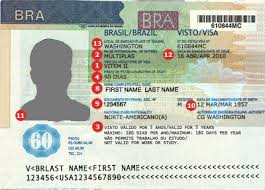PORT OF SPAIN, Trinidad, Thursday January 8, 2015 – Caribbean Airlines is said to be experiencing a shortage of pilots at its Piarco and Norman Manley International airport bases in Trinidad and Jamaica, which “will have a serious, negative impact on the airlines’ services in 2015.”
A report carried by News Day’s business magazine out of Trinidad says the shortage of pilots is not the only issue confronting the airline, as there are a number of industrial matters between the pilots and CAL’s management.
“For instance negotiations for the period 2010 – 2013 remain incomplete two years later and there is the other sensitive issue of “promised” bonuses which suddenly changed from “all – inclusive” to “discretionary”. This issue remains unsettled up to today,” says Newsday Business.
“One of the major gripes of the pilot body is the way CAL was going about trying to solve the shortage problem. A statement from the Trinidad and Tobago Airline Pilots Association (TTALPA) last weekend disclosed the airline was using at one time a recruiting company – Direct Recruiting – and Ireland-based organisation, offering six-month temporary contracts for B-737 captains,” the report said.
The statement reads, “Two months ago, TTALPA, the recognised bargaining unit for pilots, discovered that Caribbean Airlines had been advertising for B-737 pilots at a foreign recruitment agency based in Ireland.” The statement added that CAL had ignored TALPA’s efforts to address the contract B-737 pilot situation which forced the association to highlight the situation to both the Ministers of Labour and the Minister of National Security.
“We had trusted that the authorities would do the right thing and not permit any further hiring of contracted labour without consultation between CAL and TALPA,” the statement added.
And although the exercise has been stopped, Business Day has learned there are currently some six pilots in Miami waiting to undergo simulator training at the company’s expense and they have been there for more than a week.
The Trinidad and Tobago Airline Pilots Association (TTALPA) has voiced their disapproval of this action since it denied the local pilots (their members) from moving up the ranks. In the strongly-worded statement, TALPA wrote, “The fair and accepted industry practice to fill a vacancy is to promote from within in order of seniority and hire at an entry level. In CAL’s case this is First Officer on the ATR fleet.
“CAL’s method however, is predominantly to hire temporary contract B-737 pilots and subsequently make them permanent. This method denies promotion, progress and opportunity to current qualified pilots and to which TALPA strenuously objects,” the statement added.
Another issue which has been hanging fire for several months is CAL’s insistence that all its pilots should come under a single union and that should be TTALPA. Both the Trinidad and Tobago and the Jamaican pilots objected since Jamaica has its own pilots’ association – the Jamaica Airline Pilots Association(JALPA). This proved an impossible situation since there are legal and jurisdictional issues involved. It is understood that CAL has finally accepted that it has to deal with the two unions separately.
Adding fuel to the shortage fire is the resignations have been rampant at the Jamaica base. It is understood that last year alone at least a dozen pilots has quit CAL for other positions in the Middle East and Africa.
As a matter of fact just a few days ago recruiters from two Middle East Airlines (Emirates and Qatar Air were in Trinidad looking to recruit qualified pilots. There is quite a large number of pilots from the Caribbean working in the Middle East, Africa and India.
Recently however there has been a lot of talk in aviation circles that new Chief Executive Officer (CEO) Canadian Michael Di Lollo, had approached government through a ministry with a proposal to switch from Boeing to Airbus for its jet fleet. CEO Di Lollo is an experienced A-330-300 pilot, the same aircraft type that is contained in the proposal.
Canadian sources have also told Business Day that overtures have been made to the Montreal-based Bombardier aircraft manufacturer with the possibility of replacing the trouble-plagued ATRs with the hi-tech Q-400. CAL turned down the Q-400 four years ago in favour of the ATRs. As far as can be determined the proposal has remained just that — a proposal.
However, the surfacing of the proposal for a fleet change, has given rise to another scenario. Maybe CAL’s hiring practices as far as pilots are concerned — hiring pilots on contract — is really short term because if in fact the fleet change becomes a reality, the airline would have to spend millions to train its present permanent complement of pilots on the new Airbus aircraft
Efforts to reach Chairman Phillip Marshall to get a comment on the pilots’ situation proved futile, while messages to CEO Di Lollo were either not received or ignored.




